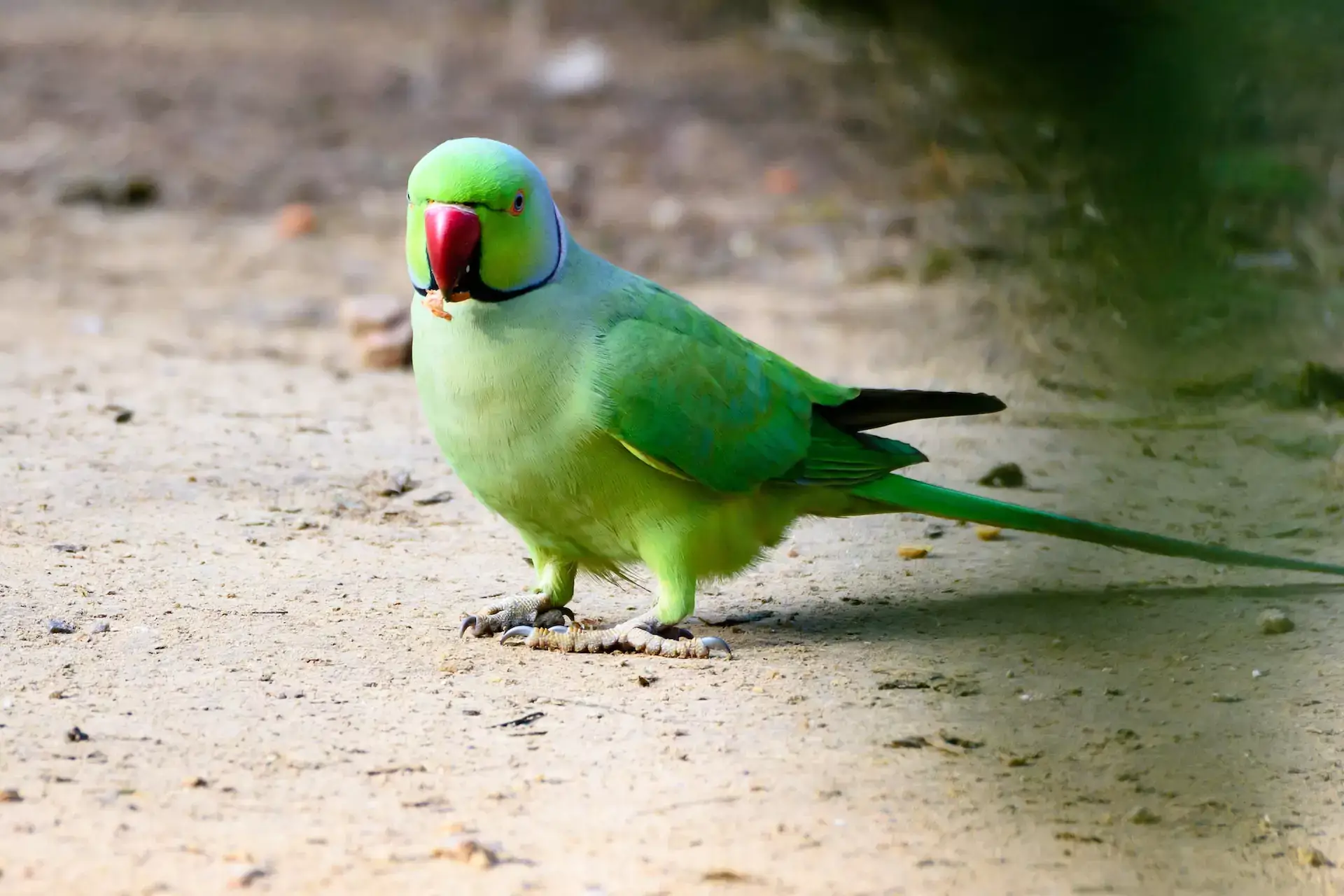Adopting A Rescued Bird
January is Adopt A Rescued Bird Month! Birds can make really fun and charming little pets. Polly packs a lot of personality into a small body. And while having a bird isn’t right for anyone, our feathered friends have definitely made lots of devoted fans. In the spirit of good animal welfare, we appreciate those who choose to adopt rescued animals. We think all of our animal friends deserve to be treated with love and compassion. That said, it’s also very important to do some research and make informed decisions before adopting. That is especially true with birds. Our winged pals have some very specific care needs, so first-time bird owners will face a bit of a learning curve. A local vet offers some advice on adopting a rescued bird in this article from All About Animals Veterinary Services, serving the Villa Rica area..
Why Should I Adopt A Rescued Bird?
There are many reasons to consider giving Polly a loving forever home. Birds are really fun and cute. They don’t take up much space in our homes, but can definitely take over huge chunks of our hearts. Some of our feathered pals are very playful. Your pet may sing, dance, and play with you. Others are more quiet and serene. Of course, it also just feels wonderful to give a scared, sweet pet a second chance.
How Do You Bond With A Rescued Bird?
Birds can be quite timid. They also tend to get very attached to their humans. This is something to be very aware of with rescues. Polly may be sad and depressed at being separated from her former master, and may need a lot of time to warm up.
Here are a few tips for helping win your winged pal’s heart:
Help Her Feel Safe: Spend time near your pet’s cage, but don’t force attention on her. You may want to put a comfy chair near Polly’s cage. Just hang out there when you want to read, scroll on your phone, or watch TV. This will help your new buddy get used to you.
Talk To Your Bird: Polly may not understand what you’re saying, but she will pick up on the tone of your voice. Use a quiet, gentle, and friendly tone.
Don’t Frighten Your Pet: It’s understandable that you may want to pet or cuddle your new bird, but it’s important to let her feel safe before you try to handle her. Don’t try to grab her or stick your hands into the cage. Offer treats and toys, and always move very slowly around your new pal.
Offer Treats: Snacks can go a long way towards bonding and building trust. That actually applies to all pets. (Snakes are something of an exception here, as they aren’t as food-motivated as some animals, but that’s another topic.) It may take a bit of time to figure out what Polly likes best. You can offer various bird-safe fruits and veggies, millet spray, treat sticks, or raw pasta. Ask your vet for specific advice.
Be Patient!: Birds get very, very attached to their owners, but that bond doesn’t form overnight. Polly will need time to learn to trust you. Don’t force things. Love takes time!
Remember, your Carrollton, GA vet is also a great source of information on bird care. Don’t be afraid to ask questions!
How Do I Choose A Rescue Bird?
Birds vary quite drastically with things like volume, cage requirements, size, and life expectancy. Some are timid and sweet, some are active and curious, and some are, well, a bit extra.
Here is a quick breakdown of a few of the most popular pet birds:
Budgie/Parakeet: Small, playful, and absolutely adorable, these little birds are wonderful pets. They’re suitable for children, but don’t need as much room as some of our larger pals.
Finches: Finches are quite small and delicate, and tend to do best in small flocks. They bond more to each other than to their humans, which makes them a good fit for someone who wants a low-maintenance pet.
Lovebirds: Colorful and cuddly, these small parrots are really cute and loveable. As the name suggests, they need buddies, as they are very social and do not do well alone.
African Grey Parrot: If you’re looking for a pet that will keep you laughing and keep you on your toes, the African Grey may be your match. Just do plenty of research first: these birds are very smart, and need lots of attention. They can get into quite a bit of mischief if they get bored.
This is of course just a small sampling. We would recommend doing lots of research, and looking at different breeds to determine what is the best bird for you.
Things To Consider When Adopting A Rescued Bird
As mentioned above, research is key. Some are better for apartments, while others need lots of room. Some are very quiet, while others are extremely loud.
Here are a few factors to consider:
- Space Requirements
- Companionship Requirements
- Volume
- Speech Capacity
- Size
- Life Expectancy
- Trainability
- Friendliness
Ask your vet for specific advice. If you’re a beginner, and you want a rescued bird, you may want to choose a breed that is an easy keeper. Some good beginner birds are the Cockatiel, Budgie, Parrotlet, Lovebirds, Canary, Pionus Parrot, and Amazon Parrot.
Of course, breed is only one factor. Birds all have their own personalities. Observe your potential pet. It’s important to make a connection, but it’s also important to make a good match. Find out about Polly’s history and medical background, and see how she interacts with you and with others. You’ll also want to get an overview of her health. If possible, speak to her vet, or have your own Carrollton, GA examine her.
Don’t Bite Off More Than You Can Chew
Keep in mind that birds are often rehomed. In some cases, this is because they are, well, a bit loud. In other cases, it’s due to behavioral issues, which often stem from improper care. A lack of understanding is a big part of the problem here. Many people adopt birds without realizing how much care and attention they need. A bird that is extremely difficult may be a bit much for a new bird owner.
How Do You Help A Rescued Bird Get Used To A New Home?
When you bring Polly home, put her in her cage, and leave her in it for a few days. It’s important for birds to have free time, but for now, you want her to feel settled. The type and size of cage you get will depend on the kind of bird you have, but we always advise getting the biggest one you have room for. (Tip: choose the cage’s location and measure that space before going shopping. That way, you’ll know how much room you have to work with.) It may be tempting to cut corners with a used cage, but be careful: if the cage’s previous inhabitant was sick, it may not be safe.
What To Expect When Adopting A Bird
We can’t overstate the importance of doing plenty of research. Birds have wonderful qualities, but they aren’t the right pet for everyone. Polly can be a messy roommate. She also has very sensitive lungs, and isn’t a good match for a household where she’ll be exposed to cigarette smoke or a lot of chemicals or vapors. You’ll need to consider other pets as well. If you have a cat, bringing a bird into your home will require a lot more ‘catculation’ than if Polly were to be an only pet.
How Do I Make My Home Safe For A Rescued Bird?
Bird proofing is a must! Many common household items are dangerous to birds. That list includes fans, window treatments, candles, mirrors, and fireplaces, and toxins, to name just a few. Small or sharp objects are also a concern, as are things like kitchen utensils, full sinks or toilets, and plastic objects. You’ll also need to make sure your feathered pal won’t be exposed to any fumes. Ask your Carrollton, GA veterinarian for specific advice.
Commit
Last but not least, think carefully before proceeding. Adoption is forever!
Do you have questions about caring for a rescued bird? Contact us here at All About Animals Veterinary Services, serving the Villa Rica area.



